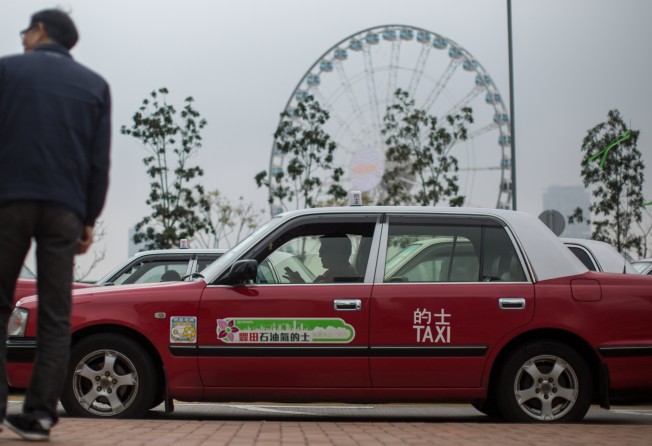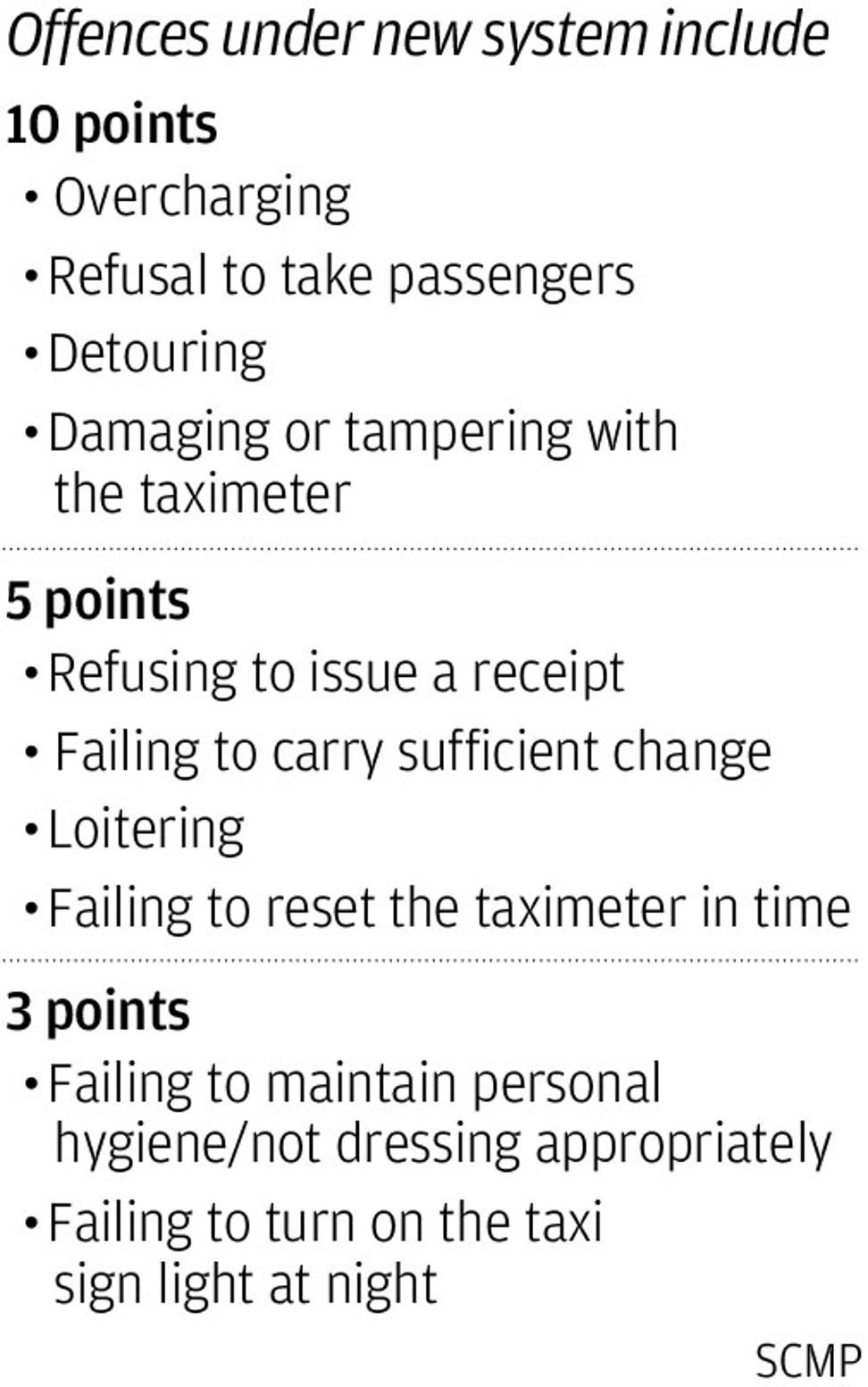
Rule requiring Hong Kong taxi drivers to dress properly and maintain good hygiene is outdated and should be scrapped, says council chairman
Workers left ‘stunned’ by proposals says Motor Transport Workers’ General Union head, who calls for consultation before points system is put into place

Requirements that taxi drivers dress appropriately and have enough change to give passengers when they pay their fare are outdated and should be scrapped, the chairman of the Hong Kong Taxi Council said on Friday.
Hung Wing-tat made the comments a day after the government announced proposals for a demerit points system, which drew mixed reactions from drivers and passengers.
Meanwhile, union boss To Sang-tang, the Kowloon branch head of the Motor Transport Wokers’ General Union, called for consultation with drivers, who he said were “stunned by the proposals”.

Under the system, drivers will have points deducted each time they commit one of 18 listed offences, in addition to facing penalties already stipulated by law.
Drivers racking up 15 points in a two-year period will have their licenses suspended for three months.
The requirement of preparing sufficient change is outdated and should be abolished
However, Hung, whose council represents 17 taxi associations, said some of the offences first came into force in the 1960s, and should be removed during the course of creating the new system.
According to the regulations governing taxis, the driver should have HK$90 in notes of HK$10, or coins of HK$2, and HK$10 in coins of HK$1 or less.
“The requirement of preparing sufficient change is outdated and should be abolished, as people are talking about [living in a] cashless society,” Hung said.
The regulations also stipulate that a working taxi driver should be “clean and tidy in his person, and adequately clothed”, something Hung would also like to see removed.
Drivers have complained that the proposals will put them under “extra pressure”, while some of the offences had “blurry definitions”.
The new system is to be discussed by the government’s Committee on Taxi Service Quality, which was set up earlier this year to suggest ways of ensuring the city’s 18,163 taxis, and drivers belonging to some 50 taxi groups, provide customers with a better service than at present.
Hung, who sits on the committee, said that while some revisions needed to be made, it did not mean that the system should not be implemented at all.
“The point system won’t introduce any new offence,” he said. “It’s meant to repeatedly remind and warn drivers who do not behave as they are required.
“The committee in principle agreed that the system is moving in the right direction. But details of the system have to be discussed in consultations held by the Transport Department with taxi groups.”
To, who is also a committee member, echoed Hung’s call for consultation, saying “details of the system are basically all directed against the drivers”.
However, To said drivers were stunned by the proposal of a points system.
“There is already an ordinance regulating all the offences listed in the system,” he said. “Why wouldn’t the government just increase the penalties of certain offences, instead of imposing extra pressure on drivers with the system?”
The union boss said that in the past it had been easy for passengers to lodge a complaint, and difficult for the drivers to defend themselves. Moreover, owners of the taxis are not covered by the points system.
“If the system is designed to constrain drivers who violate the ordinance repeatedly, why shouldn’t the taxi owner be liable for leasing the vehicle to such drivers?” To asked.
Under the proposals, failing to dress correctly will result in a driver being given five demerit points, and three for not having the correct change.
They are just two of the 18 selected from 24 offences stipulated in the Road Traffic (Public Service Vehicles) Regulations. Of those, it was suggested six, such as overcharging, refusing a fare detouring and damaging taximeters, should come with a 10-point deduction.
Among the five-point offences are loitering, refusing to print a receipt, and failing to reset the taximeter in time when the taxi is hired.
Smoking at work, and failing to turn on the light on top of the taxi at night can lead to a deduction of three points.
